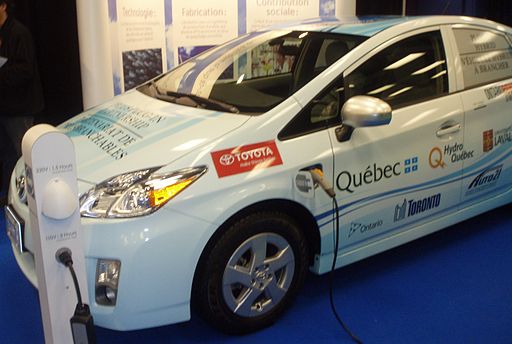 There has been an ongoing price competition between plug-in vehicle makers. The war continued last week when Toyota made an announcement of its intention to reduce the prices of its 2014 Prius Plug-in car. The same case is applicable to the 2013 plug-in models. There are no new features or technological aspects in the Prius plug-in version of the United States market. The affordability of the car model is determined by the model that a consumer chooses. Eventually, it emerges that there is a general reduction on the 2013 prices by 2, 010 dollars for a similar car. Consumers who order the 2014 Prius plug-in in advance will managed to save about 4, 620 dollars in comparison to the 2013 models.
There has been an ongoing price competition between plug-in vehicle makers. The war continued last week when Toyota made an announcement of its intention to reduce the prices of its 2014 Prius Plug-in car. The same case is applicable to the 2013 plug-in models. There are no new features or technological aspects in the Prius plug-in version of the United States market. The affordability of the car model is determined by the model that a consumer chooses. Eventually, it emerges that there is a general reduction on the 2013 prices by 2, 010 dollars for a similar car. Consumers who order the 2014 Prius plug-in in advance will managed to save about 4, 620 dollars in comparison to the 2013 models.
Following the price reduction, the pre-incentive costs for the Prius Plug-in base model hybrid prior to destination is 29,990 dollars. The price for the Prius Plug-in Hybrid Advanced is 34,905 prior to destination. The same rebates and tax credits should be expected since none of the cars has been altered from the 2014 model year. Also, perks such as the solo driver access of Californian HOV-lane are to remain. A major question that arises is whether the price cuts of Toyota are sufficiently big to give them a competitive advantage in the market. Lately, the Toyota Prius plug-in hybrid vehicle sales have been dropping, partly because of competitive pricing of 2014 Chevrolet Volt and 2013 Ford C-Max Energi plug-in cars. Although each car’s base model examples are more costly compared to 2014 Prius plug-in hybrid price cut, they give an electric range of 38 and 21 miles respectively. Therefore, they have surpassed the 11 miles of electric vehicle range offered by the Prius Plug-in Hybrid.
California Prius Plug-in owners can apply for the state-offered green HOV sticker program, which would tremendously lower commuting times for those willing to purchase Prius plug-in. This is mainly because of the low emissions and plug-in status of the car. The Prius Plug-in is the ultimate choice for a person in need of HOV lane access to take less commuting time in the morning bit for some reason, do not want to plug in daily. This is because the car has a 1-8 liter gasoline engine that has a much higher efficiency compared to the Volt and C-Max Energi. However, for real fans of electric vehicles, the price cut by Toyota will probably trigger the need to momentarily examine rival vehicles with higher plug-in capabilities.
